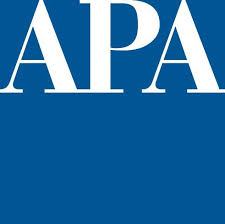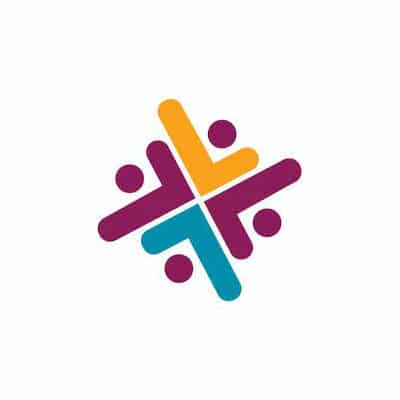Reflecting on the 21-Day Equity Challenge

EMILY BARSKE Nov 18, 2020 | 7:51 pm
11 min read time
2,518 wordsArts and Culture, Business Record Insider
The 21-Day Equity Challenge, an initiative of the United Way of Central Iowa, was a powerful opportunity to develop a deeper understanding of how inequity and racism affect our lives and our community. The 21 days provided a self-guided learning journey examining the history and impact of racism, and how it has shaped people’s lives. The experience was meant to deepen understanding and help launch a lifelong commitment to improving equity and inclusion.
While 21 days of the campaign have passed, all the materials remain online for anyone who wants to take the challenge by themselves. Go to unitedwaydm.org/equity-challenge to learn more.
Before the challenge, the Business Record asked a few participants to write a journal entry reflecting on one thing they learned while taking part. Here is what they had to say.
— Emily Barske, associate editor
Unraveling my subconscious biases
By Katie Bose, vice president, private banking officer, Bankers Trust
Since being asked to reflect on the one thing I learned during United Way of Central Iowa’s 21-Day Equity Challenge, I’ve had a difficult time narrowing it down. The challenge covered so many important aspects of equity.
However, as I read, watched and learned each day, I kept coming back to the third day of the Equity Challenge, which focused on understanding bias. In my opinion, understanding bias is one of the foundations of achieving equity.
A quote from the Day 3 email, from Effectiviology, states, “Cognitive biases affect every area of our life, from how we form our memories, to how we shape our beliefs, and how we form relationships with other people.” The challenge helped me become more aware of how my intuitive processing affects my conscious reasoning. Sometimes my intuitive processing is accurate and helpful in assessing situations, and sometimes it is a faulty reaction to my personal biases.
I also took the Project Implicit’s Hidden Bias tests on Day 3 to better understand my personal biases. Since doing so, I’ve paused more frequently to reflect on whether I’m making decisions or judgments that are fair, or whether a subconscious bias is influencing my thinking. One of my biggest takeaways from the Equity Challenge is that it is incredibly difficult to have a conscious level of your subconscious biases. No one is immune to bias, but we can all invoke our understanding of our personal biases, take pause and reflect before we react.
After watching the “Let’s Talk Bias” video (which was also helpful in the understanding privilege day), I realized that never once has someone clutched their purse while sitting next to me. In fact, as I’ve reflected on how others’ biases have impacted my life – personal and professional – I realized that, unlike many others, subconscious biases often work in my favor. As a white woman, I am generally given the benefit of the doubt. I am able to blend in and am afforded a certain level of anonymity in public.
However, I also thought about the anger I’ve felt when biases have negatively impacted my life. For example, I’ve been passed for promotions because I was too young, too bubbly, and perhaps because I am a female. Looking back, I wish I would’ve thought more about how biases have affected many other people’s situations, too. I’d also tell my younger self to be more understanding of everyone’s individual biases because for many of them, the bias may be unknown.
Thank you to the staff at United Way of Central Iowa who made the 21-Day Equity Challenge come to life. The content was informative and thought-provoking. My personal journey to gain a better understanding of equity has been more profound than I anticipated when I signed up for the challenge.
Yes! This is a problem here!
By Matt Callanan, attorney, Belin McCormick PC
Almost every morning for the last few weeks or so I have felt some sort of shock, pain or sadness as I opened the Equity Challenge email. (I have a slight feeling this was United Way’s goal.) The initial shock and visceral unease soon subsided, and my brain started whirring. The recurring question popped into my head: “How can that be right?” Quickly followed by: “Here, in Des Moines? But we’re so progressive!” This was followed by frantic Googling and a bit of disbelief.
This overall challenge was a great reminder we need to check ourselves and keep ourselves focused. For me, the most stunning statistics related to the vast wealth gap between Des Moines’ Black families and state and local averages (Day 6: Wealth & Income). The figures contained in One Economy’s deep dive were staggering. And they opened my eyes to an issue that is very easy to look past. (After all, I’m a young professional in one of the best towns for young professionals!)
Des Moines is continuously highlighted as an example of what cities can do and what cities can be. But as One Economy aptly points out, we are in a tale of two cities. Our accolades are well deserved and should be celebrated, but they cannot be a blindfold to our problems. One Economy’s study is a cautionary tale that we must look out for all people, not just those with wealth or clear paths to wealth.
I am now questioning what I can do, how I can help bridge the gap, how I can help break the cycle. It starts with small steps — smile at those who don’t look like me; visit Black-owned businesses; continue learning. The next steps are harder and may be uncomfortable — challenge your company’s hiring practices; take a chance and invest in someone; donate some valuable free time.
I’m an optimist, and I’ll always choose to look at the positives. I’m really not unique. I’m sure many feel like I do. I’m also certain there are wildly intelligent, motivated and talented people in this city who will work diligently to ensure things change in the future. Just take a look at the work One Economy has already done! The United Way’s Racial Equity Tools is a great resource, and One Economy has — quite literally — provided a Blueprint for Action. The responsibility is now ours. Can we follow the path? I think so, and I look forward to working with all of you to ensure Des Moines is open, inclusive and equitable. And hey, if we do well enough, maybe we can join another list.
Redlining revelation
By Luisita Dona Thompson, founder, executive board chairman, Filipino American Society
I found the 21-Day Equity Challenge deeply insightful. I was born and raised in the Philippines. I moved to the United States in 2002, so most of the information throughout the challenge was new to me.
For 17 years, and the majority of my time in the U.S., I was married to a middle-aged white man living in rural Iowa, which meant that I wasn’t around many people of color, especially Black Iowans. Instead, most of our circle of friends were privileged white people – meaning that racial discussions were never brought up in regular conversation. In fact, the general consensus among that group of people lent themselves to the stereotypes that Black people were more prone to cause trouble and were often referred to as thugs. Being an immigrant without context or history, I naively bought into these stereotypes. Thankfully, through my involvement in political advocacy groups and working with people of color closely over the past three years, I understand how that naivete can be taken advantage of by certain groups of people.
While the entirety of the challenge was eye-opening, the topic that stood out most to me was the topic of redlining. Seeing how segregation that was supposed to be abolished many years ago still exists in the form of redlining saddens me and provides a glimpse into the systemic racism that is still very much prevalent today. Specifically, the process in which the Center Street community and its history was wiped out in favor of suppressing a prosperous neighborhood was disheartening to learn about in a place that prides itself on the slogan “Iowa Nice.” In association with below fair market value compensation and limited options, most Black families were forced to migrate to smaller or less appealing homes at values higher than what they were given to vacate. This has bled into today’s society as more and more white people left the city in favor of suburban areas, causing property values in areas that were now predominantly owned by Black people to decrease exponentially.
My goal moving forward is to advocate for affordable housing throughout the Greater Des Moines area to help provide people of color with a level playing field in what could be viewed as the single most important asset in an average person’s life. In particular, I’m focused on bringing those options to my city of Urbandale where we currently boast a population made up of 92% white people. Doing so will increase diversity within the area, provide more stable living environments for people of color, and open public services to a city that has been hovering just under the 50,000 population prerequisite that would require the city to offer them.
No white child left behind
By Larry McBurney, civil rights commissioner, city of Urbandale
Growing up in urban Iowa as a straight, white male didn’t feel privileged. My father and mother divorced early, we were working-middle class and luxuries were scarce. The traditional white narrative of “work hard and earn it” was the stereotypical motto of my household, and I bought into it. When I graduated from Des Moines North High School with above-average grades and top 20th percentile with relative ease, it felt like I had achieved educational merit. It wasn’t until completing the 21-Day Equity Challenge that I began to question how much of that was due to my own success as opposed to the oppression of many of my African American, Hispanic or Asian/Pacific Islander classmates.
I always knew that my school was limited in resources comparative to schools around the district and state, but what never occurred to me was the further division of resources to my peers based on socioeconomic status. While we all went to work with the same school-provided resources, or lack thereof, my family was able to supplement those resources with the appropriate materials to more successfully navigate assignments, such as the latest calculator, poster boards, scissors and other everyday items that most people take for granted. Outside of simple in-class supplies, I also had access to a ride to school every day, money for basic hot-meal lunches along with the occasional a la carte, and assistance outside of school with assignments. All of this amounted to an environment conducive to succeeding academically.
While I was already at an advantage academically, the oppression of people of color extended further in the form of history whitewashing and standardized testing that have historically oppressed people of color disproportionately due to the lack of resources provided in the school and at home. Teaching curriculum was specifically designed to more favorably highlight the achievements of white colonizers while downplaying the role of people of color’s struggles as well as their achievements. Students falling behind, which grossly affected students of color more, due in large part to the curriculum, were left with few options provided to them that reasonably allowed those who struggled to successfully catch up. These struggles were disproportionately compounded for students of color who didn’t have the ability to stay after school, come in early or attend weekend classes. They were instead relegated to summer classes.
The majority of these problems I knew, deep down, existed; however, I was still under the presumption that you could overcome it with “hard work and earn it” like I had. It was, after all, the motto of an administration that “no child be left behind” in the school system. What it really meant was that no white child be left behind and hopefully bring along a few of the students of color as well. As an adult with the privilege of interacting with leaders across the community for multiple ethnically diverse groups, I’m focusing my efforts on ensuring we truly leave no child behind.
Day 22
By Nyra M. Bottley, diversity and inclusion manager, Athene USA
I am a wife. I am a mother. I am a daughter. I am a mentor. I am an African American woman living and working in the West Des Moines community. These identities and experiences help to mold who I am and contribute to what I stand for.
Athene has encouraged its employees to participate in the 21-Day Equity Challenge, a compelling opportunity for people in our community to learn more about the biases and inequalities that exist. I’m inspired to work for a company that not only prioritizes these important issues through its sponsorship of the program, but one that has raised the bar for diversity. Athene has established this important conversation with weekly discussion groups focused on what employees are learning.
I’m proud to say that our employees are learning a lot. I’ve received feedback from some employees regarding the impact of redlining on Des Moines and the definition of privilege. While I’m energized by what others around me are learning, I’ve experienced the challenge a bit differently. It has allowed me to reflect on both my personal and professional development. Growing up as an African American woman in the South, I lived redlining – even if I didn’t know it by name. I have experienced bias – even if my parents tried to protect me from it.
Through the Challenge, I’ve reflected on what it means to have more of our community aware of societal issues. I’ve appreciated the questions brought to me, especially “What can I do to help?” My answer is “I don’t know, but let’s keep talking about it.”
The 21-Day Challenge has opened the door to have conversations that matter. The next step is for us to keep that door open and embrace those who are waiting on the other side with histories, struggles and triumphs that make them unique. The key to diversity and inclusion is acknowledging and celebrating our differences and seeking to understand the experiences that define and shape us. The sense of shared responsibility is unlocked by the powerful tool of knowledge. This is how we ensure the impact of the 21-Day Equity Challenge lives on.
The ultimate success of the challenge is contingent upon what happens on Day 22 and beyond.
So, what does Day 22 look like for you? What does Day 22 look like for our community? There are a lot of ways to leverage our learning on Day 22 for the rest of our lifetimes. Use your voice, speak up, correct biases, volunteer, advocate. Most paramount, keep learning, ask questions, and have the uncomfortable conversations.
Day 22 is an invitation to act. I am hopeful our community can utilize the 21-Day Equity Challenge as a catalyst for profound and meaningful change.










